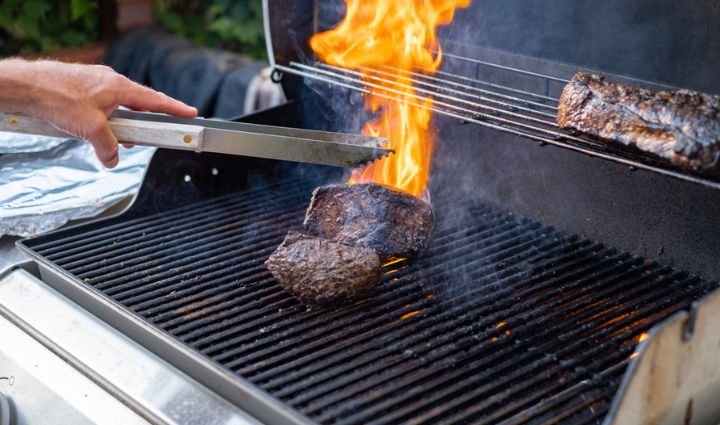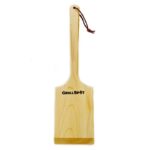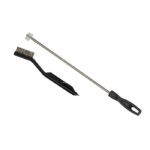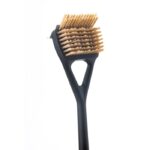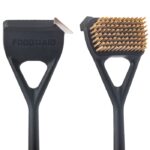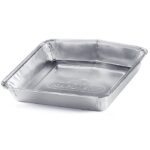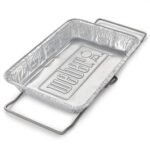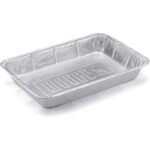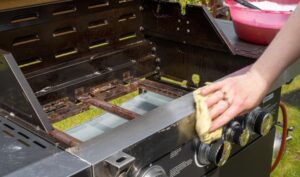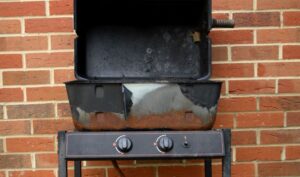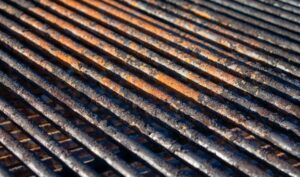The Complete Guide to Troubleshooting Gas Grill Issues is your source for step-by-step instructions on how to diagnose and fix the most common gas grill issues. Whether your grill isn’t heating properly, won’t stay lit, or simply has rusty parts, we’ve got the answers you need to get your gas barbecue firing on all cylinders.
Grill flare ups—where your grill’s flames increase quickly and briefly—can be an alarming part of the grilling process, especially if you aren’t prepared for them.
In this section of the Complete Guide to Troubleshooting Gas Grill Issues, we’ll help you figure out what causes infrared and propane grill flare ups, how you can fix them, and even how you can prevent them. Keep reading to learn:
- What causes grill flare ups
- How to prevent propane grill flare ups
- How to deal with flare ups when they occur
Now let’s begin.
What Causes Grill Flare Ups?
A flare up is a temporary surge of flame that can be surprising and leave a bit more char on your food than you might like.
Propane grill flare ups and infrared grill flare ups are most commonly caused by dripping fat, oil, or marinade—not an issue with your grill. They can also be caused by leaving the lid open when searing fatty foods and grilling on windy days—the wind forces oxygen between the grates, changing the mixture and causing a momentary flare up.
Propane and infrared grills typically have fewer flare ups because they have drip guards in place to protect the burners and direct drippings to the grease trap. As a result, flare ups are more likely on charcoal grills, but they certainly aren’t unheard of on a gas grill, particularly if the heat plates, which can sometimes have indentations, collect or trap grease.
How To Prevent Grill Flare Ups
1. Keep your grill clean
Taking the time to clean your grill after each cook will reduce the number of flare ups you experience. Brush and scrub debris off your grates—you can even use an onion if you’re desperate for a cleaning utensil. Take extra care to wipe down the heat plates and make sure you are cleaning out the grease trap at least once a month—more often if you are cooking on it daily.
Need help cleaning your grill?
2. Carefully prepare your food
Foods with higher fat content—such as steaks with a large fat cap, burgers, or skin-on chicken— will drip more, so where possible, cut off any excess fat or skin (anything more than ¼ inch of fat from the edges).
Marinades and oils in excess will also run off and onto the heat plates and burners, so make sure it isn’t dripping off your food before you place it on the grill.
If you know your grill is prone to flare ups with a specific food item, use a drip pan to help prevent this and reduce the amount of clean-up required.
3. Preheat properly
Wait until your grill is at the temperature you’re going to cook at before you put anything on the grates. This can help ensure anything left over from previous grill sessions is burnt off and that things won’t stick as easily this time around.
4. Stick around after adding food to the grates
Don’t abandon your grill in the early stages—most flare ups occur shortly after adding food to the grill or immediately after you flip food over.
How To Deal With Flare Ups When They Occur
Propane grill flare ups typically die down quickly on their own after the offending ingredient burns off. If you find the flare up lasting for more than a few seconds, the best solution is to utilize two-zone cooking and move your food to the cool zone on the grill to prevent repeat dripping. If you don’t have a cool zone set up, move the items to your warming rack or a plate.
If you’re not familiar with two-zone cooking, all you have to do is leave one section of burners turned off so there are two separate zones: one with fire and one without.
Do not try to control a grill flare up with water. Since they are typically caused by fat and grease, water will not douse the flames and can actually cause spattering and spread the fire. If you’re really concerned, you can turn off the grill and shut the lid to starve the fire of oxygen.
GRILL SPOT TIP: It’s always a good idea to keep a box of baking soda (and a fire extinguisher—in case things escalate) on hand any time you’re cooking with oil or fatty foods. Dumping a box of baking soda onto a small grease fire is a quick way to put out the flames.
Conclusion
Grill flare ups can be caused by a few different things, but they are most commonly caused by grease, oil, or marinade dripping off of the food, not problems with your grill.
Prevent grill flare ups by:
- Keeping your grill clean
- Carefully preparing your food
- Preheating your grill properly
- Sticking around after adding food to the grill
If a grill flare up does occur, move the offending food item to a cool zone, the warming rack, or off the grill and onto a plate.
Learn more about different grill problems, what causes them, and how to solve them in our Complete Guide to Troubleshooting Gas Grill Issues:

